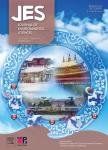Review on utilization of biochar for metal-contaminated soil and sediment remediation
Review on utilization of biochar for metal-contaminated soil and sediment remediation作者机构:College of Water Sciences Beijing Normal University Department of Civil Engineering Queen's University
出 版 物:《Journal of Environmental Sciences》 (环境科学学报(英文版))
年 卷 期:2018年第30卷第1期
页 面:156-173页
核心收录:
学科分类:12[管理学] 1204[管理学-公共管理] 082803[工学-农业生物环境与能源工程] 082802[工学-农业水土工程] 08[工学] 0828[工学-农业工程] 120405[管理学-土地资源管理]
基 金:supported by the Science and Technology Project of Beijing (No. D161100000216001) the Fundamental Research Funds for the Central University (No. 2014KJJCB23) the Youth Scholars Program of Beijing Normal University (No. 2014NT32)
主 题:Biochar Metal contamination Soil/sediment remediation Biological effect
摘 要:Biochar is a carbon-neutral or even carbon-negative material produced through thermal decomposition of plant-and animal-based biomass under oxygen-limited ***, there has been an increasing interest in the application of biochar as an adsorbent, soil ameliorant and climate mitigation approach in many types of ***-contaminated soil remediation using biochar has been intensively investigated in small-scale and pilot-scale trials with obtained beneficial results and multifaceted *** so far, the study and application of biochar in contaminated sediment management has been very limited, and this is also a worldwide problem. Nonetheless, there is reason to believe that the same multiple benefits can also be realized with these sediments due to similar mechanisms for stabilizing contaminants. This paper provides a review on current biochar properties and its use as a sorbent/amendment for metal-contaminated soil/sediment remediation and its effect on plant growth, fauna habits as well as microorganism communities. In addition, the use of biochar as a potential strategy for contaminated sediment management is also discussed, especially as regards in-situ planning. Finally, we highlight the possibility of biochar application as an effective amendment and propose further research directions to ensure the safe and sustainable use of biochar as an amendment for remediation of contaminated soil and sediment.



